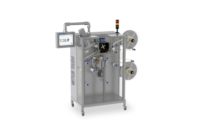Eco food labels thrive in 2013
Proliferation could have adverse consequences

The number of eco-labels in the food industry is expected to continue to increase in 2013, and this proliferation could have adverse consequences, states research group Organic Monitor.
More than 200 seals and logos currently represent ecological, ethical, ingredient or sustainability attributes in the global food industry, the group says. Organic products make up the majority of the estimated $75 billion eco-labeled food and drink market in the U.S. Most sales are in Europe and North America, which have legally protected organic logos, but many new organic labels are being introduced in Asia, Latin America and other regions.
The lack of organization between these standards is resulting in multiple certifications and an exponential rise in organic eco-labels. The group also says the mushrooming number of eco-labels could actually discourage food producers from adopting them as certification costs are increasing.
It’s also confusing for consumers, who may find it tricky to distinguish between the logos and seals of organic and fair-trade products, Organic Monitor says. In 2011, chemical company BASF launched a website to help customers compare the crowded world of eco-labels and certifications.
Source: www.enviromentalleader.com
Editor's Note:
This article originally appeared on www.snackandbakery.com, a sister publication of The National Provisioner.
Looking for a reprint of this article?
From high-res PDFs to custom plaques, order your copy today!







